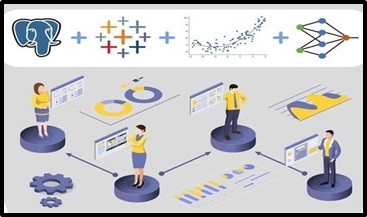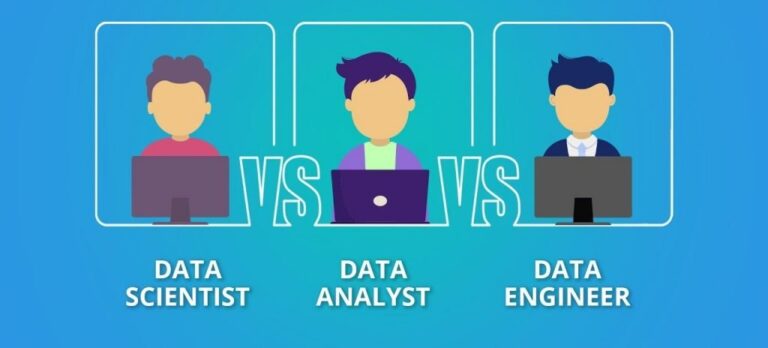The Comprehensive guide to start a career as Data Scientist

In today’s data-centric world, the role of a #datascientist has become increasingly vital. Data scientists are entrusted with the task of extracting valuable insights from vast datasets to drive decision-making and innovation across a multitude of industries. If you aspire to become a data scientist with no prior background, this roadmap will serve as your guiding compass, outlining the essential steps to embark on this exciting career journey.
1. Laying the Mathematical and Statistical Foundation
To commence your journey as a data scientist, it’s crucial to establish a strong footing in mathematics and statistics. Concentrate on mastering fundamental concepts such as linear algebra, calculus, probability theory, and hypothesis testing. These are the fundamental building blocks of data analysis and machine learning.
2. Programming Languages Proficiency
Data scientists need to be proficient in programming languages like #Python and #R. Python holds a prominent place in the field owing to its extensive #libraries and strong community support. Begin with grasping the basics and progressively delve deeper into these programming languages.

3. Data Wrangling and Visualization
Achieving mastery in data manipulation libraries like #pandas for Python and #datavisualization tools like #matplotlib and #seaborn is paramount. Being able to clean and effectively visualize data is the bedrock of understanding it.
4. Exploring Machine Learning
A profound understanding of machine learning is pivotal for data scientists. Delve into the study of algorithms for classification, regression, clustering, and natural language processing. Initiate your journey with #scikitlearn for Python, and gradually explore more advanced libraries such as TensorFlow and PyTorch.
5. Data Analysis and the Art of Storytelling
Develop your skills in #exploratorydataanalysis (EDA) to unearth valuable insights from data. Learn how to craft compelling data-driven narratives and visualizations to convey your findings with impact.
6. Navigating Big Data Technologies
Familiarize yourself with big data technologies like #Hadoop and Spark, which become indispensable when handling extensive datasets, a common occurrence in real-world scenarios.
7. Databases and SQL Proficiency
Acquire knowledge about relational #databases and #SQL for data retrieval and manipulation. Proficiency in working with databases is critical, as data is often stored in structured formats.
8. Hands-On Projects
Apply your newfound knowledge through practical projects. Create a #portfolio that showcases your data science skills and make it available on platforms like #GitHub. This will help you demonstrate your competencies to prospective employers.
9. Network and Join Communities
Become part of data science communities, attend meetups, and actively engage in online forums like Stack Overflow, hackerrank, hackerearth etc. Networking can unlock opportunities for job placements and collaborations.
10. Stay Informed and Updated
The field of data science is perpetually evolving. Stay up to date with the latest trends and research papers. Engage with blogs, follow experts on social media, and subscribe to newsletters to foster continuous learning.
11. Dive into Advanced Concepts
As you gain experience, delve into advanced topics such as deep learning, reinforcement learning, and specialized domains like computer vision or natural language processing.
12. Cultivate Domain Expertise
To excel in data science, consider developing domain expertise in a specific industry. This enables you to grasp the unique challenges and opportunities within that field.
13. Master the Art of Job Hunting and Interviews
Prepare for job interviews by honing your skills in coding exercises, machine learning case studies, and answering behavioural questions. Tailor your resume and cover letter to accentuate your relevant skills and projects.
14. Commit to Lifelong Learning
Data science is a field that demands continual learning. Stay inquisitive and adaptable to new tools and techniques as they emerge.
Conclusion
Embarking on the journey to become a data scientist from scratch is undoubtedly a challenging yet gratifying endeavour. Through unwavering dedication, the establishment of a robust foundation, hands-on experience, and a commitment to lifelong learning, you can pave the way for a successful career in this exhilarating field. Keep in mind that success is not solely about acquiring knowledge but also about its practical application in solving real-world problems and conveying your insights effectively. Best of luck as you embark on your path to becoming a data scientist

